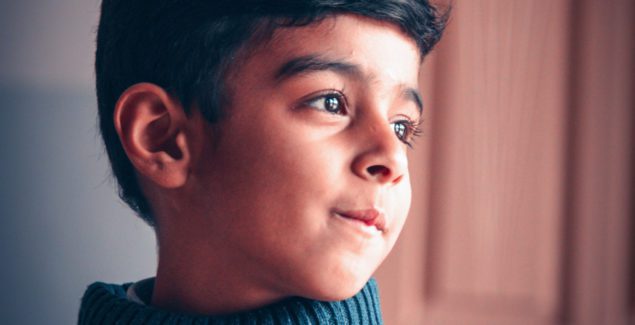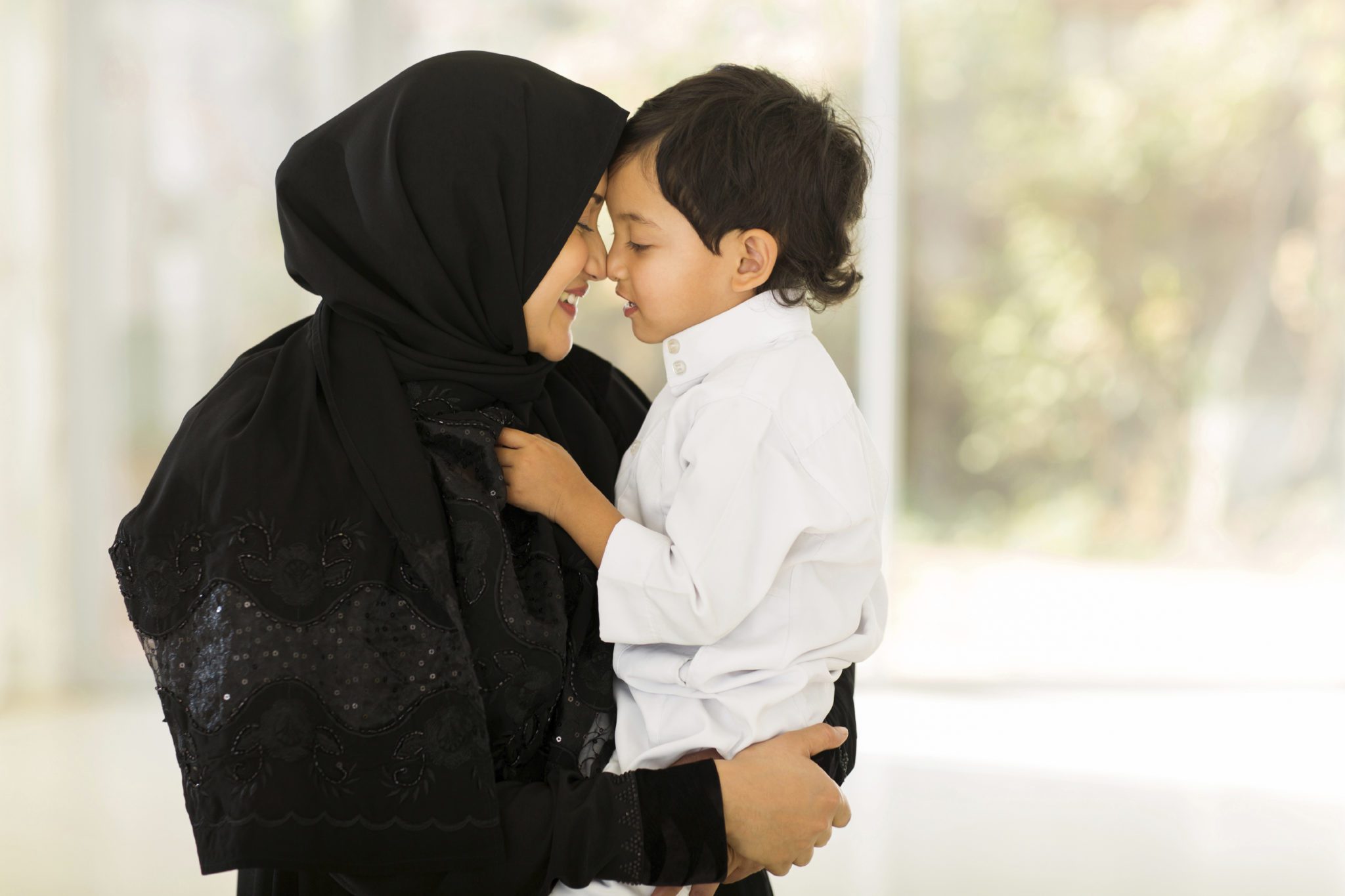My Child Is Being Bullied Because Of Religion

Posted in: Grade School
Topics: Bullying
There is a saying with regard to prejudice and human behavior. It’s a shrinky phrase (by that, I mean that it’s loaded with jargon), so I’m going to tell it first, and then we’ll translate it through, sadly, an increasingly common example.
Here’s the phrase:
“The narcissism of small differences.”
Sigmund Freud himself coined this term way back in 1917. He based it on the works of a British anthropologist named Earnest Crawley. Both Crawley and Freud noticed that people who have a whole lot in common tend to discriminate most often against each other by citing their relatively minor differences.
In other words, the only groups who really fight with each are the ones who mostly share the same values and customs. It’s the tiny differences, like little pebbles in shoes, that get under peoples’ skin and make them act in prejudiced ways.
While this notion is probably oversimplified—prejudice and discrimination are complex social phenomena that are not this simply explained—the idea that people who have much in common notice the differences more starkly, is an important one. Keep this in mind as we look at what happened to 10-year-old Ibrahim.
Ibrahim is a 10-year-old boy whose parents moved to the United States from Pakistan when Ibrahim was three. His father studied engineering at MIT, and after receiving a good job offer, he decided to bring his family to the Boston area. Ibrahim’s family moved into a Boston suburb, and at first, he and his two older sisters had few problems. Preschool for Ibrahim went well, and his parents started him early in Islamic after-school studies once he began first grade.
In fourth grade, Ibrahim came home from school crying. A few kids on the playground had called him a “rag head,” a term that had confused Ibrahim at first, so he laughed. One of the boys who had begun to single out Ibrahim then told him that he shouldn’t laugh, that he was “different,” and that his “religion was a crock.”
Ibrahim was shocked, and didn’t know where to turn. He really hadn’t ever experienced this kind of treatment before, and because it felt so out of the ordinary, he didn’t know if it was something to even tell the teachers. That night at dinner, he told his family.
Ibrahim’s father looked sad at first, and then thoughtful. He asked Ibrahim who the boys were.
“That’s the funny thing,” Ibrahim replied. “It was Sammy and Will. They were both on my soccer team last spring. Last year I went to their house tons of times.”
The narcissism of small differences.
Ibrahim, Sammy, and Will all love soccer. Ibrahim, Sammy, and Will all love Ironman. They love ice cream, and burritos, and they’ve had slight disagreements in the past over whether black or red Twizzlers are better.
So, what’s going on? Why have Sammy and Will seemingly decided all of a sudden to pick on Ibrahim? They were almost inseparable the year before.
Why Is This Happening?
There are a few ways to look at this situation, and each method offers differing solutions.
- First, whether prejudice or other forces drive Sammy and Will’s behavior, the behavior is bullying, pure and simple. Schools have clear protocols for bullying, and it’s in that light that Ibrahim can be told that it’s all right to let his teachers know what’s happening. When the school sits down with Ibrahim, Sammy, and Will, the teachers can talk with all three of them about the forces behind the urge to bully, and then come up with solutions.
- Still, there is obviously an added dimension here. The bullying against Ibrahim is more complex because of the perceived differences between Ibrahim and his classmates. Ibrahim has darker skin. His parents speak with an accent, and his mother covers her head with a shawl. In observance of his religion, Ibrahim sometimes misses school for certain holidays, and, perhaps most importantly, past United States’ military actions were unfortunately oversimplified as a “war against Islam.” There even used to be a Facebook page called “I would fight in a war against Islam.”
- That brings us to the stark area where identity, race, ethnicity and the importance of belonging start to play extremely important roles in the lives of kids. Around late school-age and early adolescence, kids start to pay increasing attention to where they perceive they belong. Gil Noam, an internationally celebrated developmental psychologist, calls this the “Psychology of Belonging.” In other words, kids Ibrahim’s age start to separate into groups that help them to shape their identity. Often, these groups will use factors such as differences in ethnicity or religion to generate the boundaries among factions.
So, even though Sammy, Will, and Ibrahim have a whole lot in common, they also have a few stark differences. And, it’s on these differences that Sammy and Will are focusing. They choose to do so now because the developmental forces of their particular age provoke these separations. In that sense, the singling out that Ibrahim is facing is relatively, though sadly, common.
But, common occurrences are not necessarily OK.
What Can Ibrahim Do?
This is where schools, families and communities can come together. There is very good evidence that immediate discussions within the whole school about incidents like that which happened to Ibrahim can make a huge difference. Most importantly, these discussions, usually held in assemblies or individual classrooms, should not be punitive, and they should not single out Ibrahim. That would only make matters worse. Instead, if communities can share traditions (as cheesy as that might sound), then barriers of misunderstanding do, in fact, erode.
This sharing can be done through storytelling, through inviting others to take part in important holiday celebrations, through the initiation of multicultural fairs, and through general ambassadorship from all members of a community toward one another.
The days of teaching Ibrahim to fight back are thankfully over. For 10-year-olds, when the response to prejudice is abject and instructed aggression, the message sent to both parties involved is that the differences are profound enough to merit a fight. There are no differences in elementary school that would ever call for a fight. No good can come from this.
Instead, sharing the things that are different actually helps to avoid a fight precisely because the sharing accentuates the commonalities. Ibrahim’s family gets excited over their family’s favorite food just as Sammy’s does. Will’s family members are glad to see each other at holidays just as Ibrahim’s are. And they all still love soccer.
These are difficult times for those who seem different. Over a decade of war hasn’t helped with struggles like Ibrahim’s in our neighborhoods and schools, but we parents, teachers and entire communities can watch for and prevent the progression of Ibrahim’s experience. In this way, we can all continue to move peacefully forward. After all, resilience is not so much a quality of an individual; it’s a quality of the environment.
This article originally aired as part of an ABC News segment on 11/02/2009.

 Share
Share Tweet
Tweet






